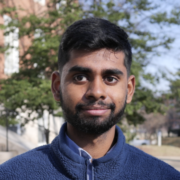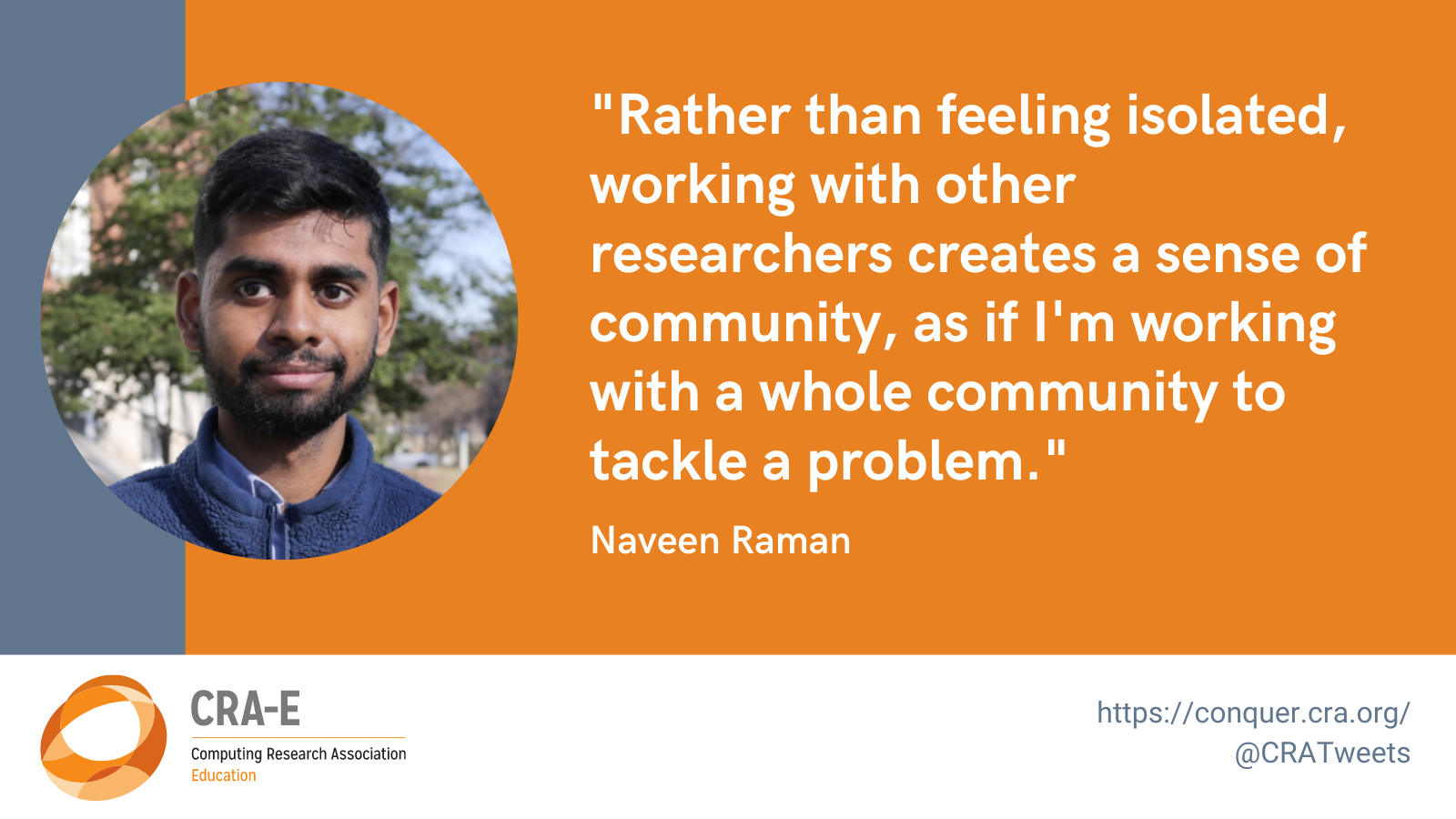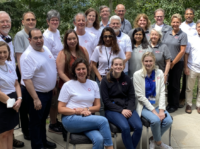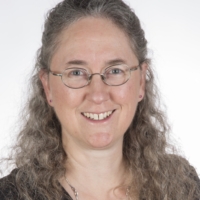CRA-E’s Undergraduate Research Highlights: Fairness in Rideshare Algorithms Helped Pave My Path
CRA-E’s “Undergraduate Research Highlights” series showcases outstanding research done by undergraduate students at universities and colleges across North America. Each article features the story of a successful undergraduate researcher and offers personal insights into their experiences with finding an advisor, undertaking new research projects, and discovering how research can impact their personal and professional future. It is one of a number of CRA-E’s activities that foster and recognize talented computing researchers with the goal of increasing the research pipeline, promoting graduate education, and advocating research-based careers.
In addition to helping students understand the process of getting involved in research, the articles also serve as a venue for students to pass along advice to others who aspire to become involved in research themselves. Students selected for the research highlights include those receiving recognition in the CRA Outstanding Undergraduate Researcher Award competition. This series is written and edited by CRA-E Graduate Fellows.
 Fairness in Rideshare Algorithms Helped Pave My Path
Fairness in Rideshare Algorithms Helped Pave My Path
Naveen Raman, B.S. in Mathematics and Computer Science, University of Maryland, College Park
This Q&A highlight features Naveen Raman, a Finalist in the 2022 CRA Outstanding Undergraduate Researchers award program. Naveen graduated from the University of Maryland, College Park and is now at the University of Cambridge on a Churchill Scholarship to pursue an MPhil in Advanced Computer Science. This interview has been edited for length and clarity.
Can you tell us a bit about how you originally got involved in research?
I found my first research internship during high school. I had heard of other students doing summer research internships, so I emailed different professors at my local university, University of Maryland at College Park. Among the professors who responded, I found Dr. Bill Gasarch’s project most interesting. It involved trying to determine the optimal way to split up a bunch of resources to maximize the size of the minimum resource—this is called the muffin problem, since if you’re dividing up muffins among a group, nobody wants a small piece. And I thought, this is really cool, because it involved both a little bit of practical elements, but also a lot of proving things in theory.
Over my undergraduate degree, I worked with a number of mentors on different research topics, from computational biology to fairness, which is what I’m focused on now.
Your CRA recognition was for your work on fairness in rideshare algorithms; can you tell us more about that project?
Our project aimed to make the algorithms that match rideshare drivers with riders more fair. Existing matching algorithms aimed to maximize income but could lead to unequal income distribution among drivers and discriminatory treatment of riders. For example, in some areas, Black riders tend to experience more ride cancellations (Ge et al., 2016).
By designing new objective functions for these matching algorithms, we were able to improve rider-side fairness inequality. Then, by augmenting these fairer matching algorithms with income redistribution, we also improved driver wage equality.
We published our rideshare fairness balancing work at IJCAI, a premier Artificial Intelligence conference.
Who were your research mentors on this project, and what was it like working with them?
My main mentors on this project were Dr. John Dickerson at the University of Maryland and Sanket Shah, who was at Singapore Management University (SMU) during the project, and is now at Harvard University.
One of the first papers I read on rideshare algorithms was actually one of Sanket’s papers, and I aimed to build on his model for this project. I emailed him to get some extra data and clarify some aspects of his model. In this back-and-forth, he expressed interest in joining our project, and his experience with rideshare algorithms proved invaluable. He provided ideas throughout the project, and his feedback during the paper-writing process helped me improve as a writer.
Professor Dickerson has also provided mentorship and guidance over the years. Beyond project mentorship, he has helped me with the grad school application process, including guiding me on where to apply, how to write a statement of purpose, and how to select the best grad school for me.
Given you’ve been on multiple projects, what have you observed, working with different mentors?
Everyone has different styles of mentoring and research. Some professors prefer to be more hands-on, while others prefer giving higher-level feedback. Researchers have different preferences for conducting meetings and other events. Learning how each researcher differs and how you can modify your style to match theirs is important for effective communication.
What challenges did you encounter when first getting started in research?
The toughest thing about research is the freedom you get. Deciding what to read and sorting through the sheer volume of information is still challenging for me. I found that the only way to address this is to stay organized. You see everyone organize things differently, you take little bits from others, and learn through trial and error. Every once in a while, I reorganize my things, and over time my system seems to become more tailored toward my needs.
What is one of your favorite aspects of research?
I enjoy the combination of autonomy and collaboration in research. My problem is my own, and in a sense, I’m the expert on my problem. Yet I’m able to collaborate with other researchers with varying expertise. Rather than feeling isolated, working with other researchers creates a sense of community, as if I’m working with a whole community to tackle a problem.
Do you have any advice for other students looking to get into research?
I would encourage students to try out different things in general; not just research, but a variety of activities. I had the opportunity to take classes ranging from naval ethics to educational policy to Ottoman history and work on topics ranging from artificial intelligence to green transportation. Every topic taught me new skills and seemingly incongruent topics had synergistic connections that helped me.
— Edited by Yasra Chandio and Nadia Ady










